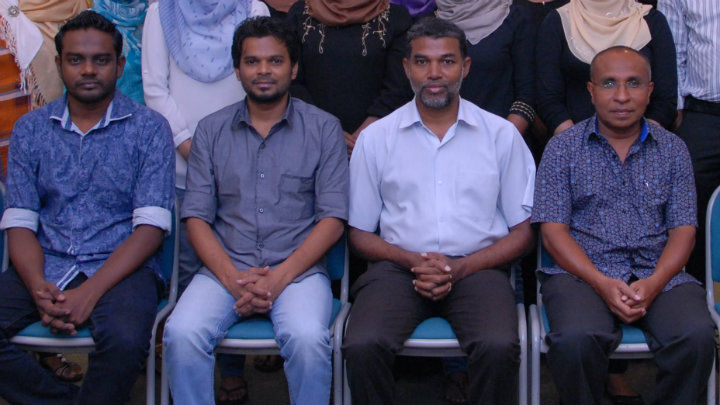Democracy Week rescheduled for February
The Elections Commission is preparing to celebrate ‘Democracy Week’ in February with a door-to-door campaign, debate, poster and essay competitions, quizzes, beach sports, and a family evening. The event was first scheduled to take place on October 10 last year, but was delayed after the September 28 blast on President Abdulla Yameen’s speedboat, which the government insists was an assassination attempt.

24 Jan 2016, 09:00
The Elections Commission is preparing to mark ‘Democracy Week’ in February, after having postponed the celebration due to the September 28 blast on President Abdulla Yameen’s speedboat last year.
Elections Commissioner Ahmed Akram told the press that the activities will kick off on February 14 with a blood donation drive in Malé, followed by democracy education sessions for secondary school students and a forum on discussing women’s role in politics.
A door-to-door campaign, a football match, a special school assembly and democracy education for school children will take place on the northern island of Hoarafushi in Haa Alif atoll.
The Friday sermon that week will be dedicated to Democracy and Islam, Akram added.
Become a member
Get full access to our archive and personalise your experience.
Already a member?
Discussion
No comments yet. Be the first to share your thoughts!
No comments yet. Be the first to join the conversation!
Join the Conversation
Sign in to share your thoughts under an alias and take part in the discussion. Independent journalism thrives on open, respectful debate — your voice matters.




